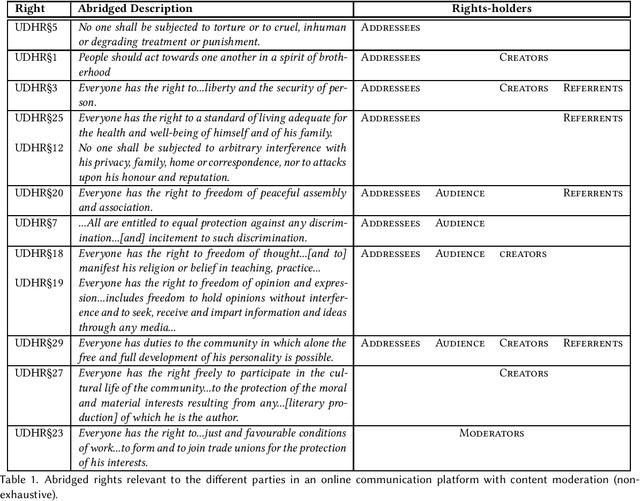A Human Rights-Based Approach to Responsible AI
Paper and Code
Oct 06, 2022
Research on fairness, accountability, transparency and ethics of AI-based interventions in society has gained much-needed momentum in recent years. However it lacks an explicit alignment with a set of normative values and principles that guide this research and interventions. Rather, an implicit consensus is often assumed to hold for the values we impart into our models - something that is at odds with the pluralistic world we live in. In this paper, we put forth the doctrine of universal human rights as a set of globally salient and cross-culturally recognized set of values that can serve as a grounding framework for explicit value alignment in responsible AI - and discuss its efficacy as a framework for civil society partnership and participation. We argue that a human rights framework orients the research in this space away from the machines and the risks of their biases, and towards humans and the risks to their rights, essentially helping to center the conversation around who is harmed, what harms they face, and how those harms may be mitigated.
 Add to Chrome
Add to Chrome Add to Firefox
Add to Firefox Add to Edge
Add to Edge